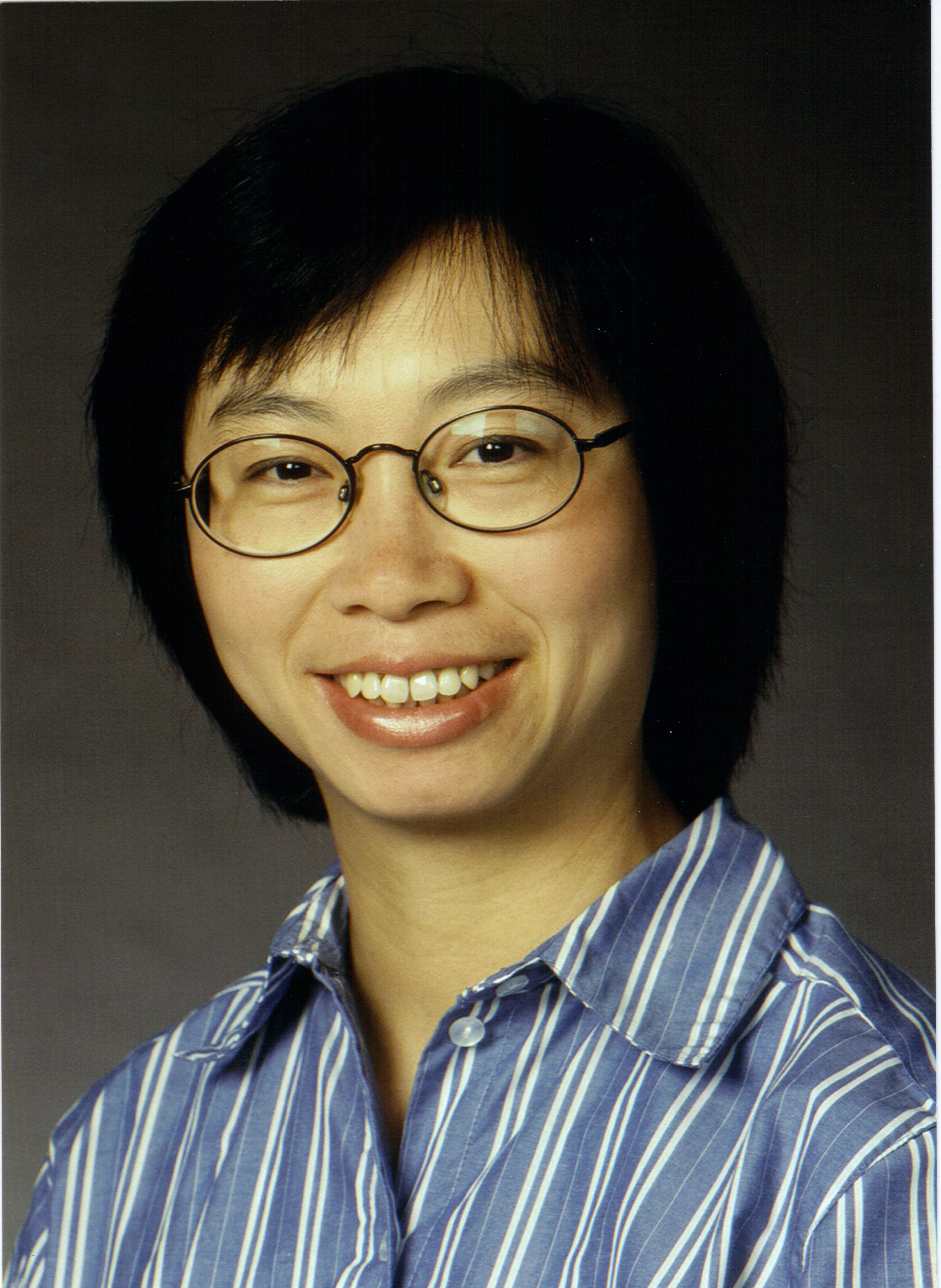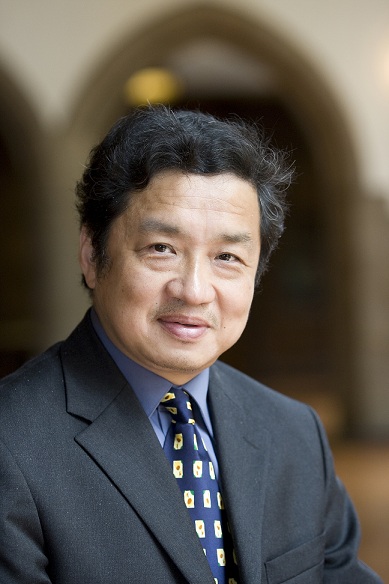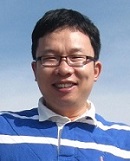
Dr. Weihua Zhuang, University of Waterloo |
"Title: Spectrum and Energy Efficient MAC for Wireless Ad Hoc Networks"
Bio:
Weihua Zhuang has been with the Department of Electrical and Computer Engineering, University of Waterloo, Canada, since 1993, where she is a Professor and a Tier I Canada Research Chair in Wireless Communication Networks. Her current research focuses on link, network, and transport layers for 5G networks and beyond. She is a co-recipient of several best paper awards from IEEE conferences. Dr. Zhuang was the Editor-in-Chief of IEEE Transactions on Vehicular Technology (2007-2013), and the Technical Program Chair of the IEEE VTC Fall 2017 and 2016. She is a Fellow of the IEEE, the Royal Society of Canada, the Canadian Academy of Engineering, and the Engineering Institute of Canada. She is an elected member in the Board of Governors and Vice President Publications of the IEEE Vehicular Technology Society.
Abstrat:
Massive machine-to-machine (M2M) communication has been identified as an important use case in 5G communication networks for various Internet-of-Things (IoT) applications. The large number of machines/devices necessitates establishing an effective self-organizing wireless ad hoc network, complementary to cellular systems. In this presentation, we discuss how to dynamically coordinate the transmissions time and bandwidth based on instantaneous traffic load of the links in the ad hoc network, in order to efficiently utilize radio spectrum and device energy. First, we present an energy-efficient medium access control (MAC) protocol for a fully connected network. Energy consumption is reduced by periodically putting radio interfaces in the sleep mode and by reducing transmission collisions. Second, we present a distributed MAC scheme based on dynamic space-reservation in a multi-hop environment. For each scheduled transmission, a proper space area around the receiver node is reserved to enhance spatial spectrum reuse. Third, we study joint scheduling and transmission power control. Based on an asymptotic analysis, we present a scheduling and power control algorithm to approach the maximum spectrum efficiency, subject to an energy consumption constraint. Numerical results demonstrate that the proposed solutions outperform existing MAC protocols.
|

Dr. Wu Jie, IEEE Fellow, Temple University |
"Title: On Efficient Data Collection Using Autonomous Underwater Vehicles"
Bio: Jie Wu is the Director of the Center for Networked Computing and Laura H. Carnell professor at Temple University. He also serves as the Director of International Affairs at College of Science and Technology. He served as Chair of Department of Computer and Information Sciences from the summer of 2009 to the summer of 2016 and Associate Vice Provost for International Affairs from the fall of 2015 to the summer of 2017. Prior to joining Temple University, he was a program director at the National Science Foundation and was a distinguished professor at Florida Atlantic University. His current research interests include mobile computing and wireless net- works, routing protocols, cloud and green computing, network trust and security, and social network applications. Dr. Wu regularly publishes in scholarly journals, conference proceedings, and books. He serves on several editorial boards, including IEEE Transactions on Service Computing and the Journal of Parallel and Distributed Computing. Dr. Wu was general co-chair for IEEE MASS 2006, IEEE IPDPS 2008, IEEE ICDCS 2013, ACM MobiHoc 2014, ICPP 2016, and IEEE CNS 2016, as well as program co-chair for IEEE INFOCOM 2011 and CCF CNCC 2013. He was an IEEE Computer Society Distinguished Visitor, ACM Distinguished Speaker, and chair for the IEEE Technical Committee on Distributed Processing (TCDP). Dr. Wu is a CCF Distinguished Speaker and a Fellow of the IEEE. He is the recipient of the 2011 China Computer Federation (CCF) Overseas Outstanding Achievement Award.
Abstrat: This talk starts with a vision for a futuristic multi-tiered network that spans network tiers in the air, on the ground, and under the sea. We then focus on efficient data collection in the deep sea that poses some unique challenges due to the need for timely data reporting and the delay of acoustic transmission in the ocean. Autonomous underwater vehicles (AUVs) are deployed in the deep sea to surface frequently to transmit collected data from sensors (in a 2D or 3D search space) to the surface stations. However, resurfacing incurs additional delay. Our objective is to minimize the average data reporting delay, through optimizing the number and locations of AUV resurfacing events. We study trajectory planning of AUVs using an extended Euler circuit, where the search space is a set of segments (e.g, oil pipes) in the deep sea. To further reduce data reporting delay, we also explore schemes that schedule multiple AUVs cooperatively. Experiments in both the synthetic and real traces are used to validate the efficiency of the proposed solutions.
|

Dr. Tian He, Professor, IEEE Fellow, University of Minnesota |
"Title: Recent Advances in Cross-Technology Communication and Its applications"
Bio: Dr. Tian He is currently a full professor in the Department of Computer Science and Engineering at the University of Minnesota-Twin Cities. He received the Ph.D. degree under Professor John A. Stankovic from the University of Virginia, Virginia. Dr. He is the author and co-author of over 250 papers in premier network journals and conferences with over 21,000 citations (H-Index 61). Dr. He is the recipient of the NSF CAREER Award (2009), McKnight Land-Grant Chaired Professorship (2011), George W. Taylor Distinguished Research Award (2015), China NSF Outstanding Overseas Young Researcher I and II (2012 and 2016), and seven best paper awards in international conferences including MobiCom and SenSys. Dr. He has served a few general/program chair positions in international conferences and on many program committees and also has been an editorial board member for six international journals including ACM Transactions on Sensor Networks, IEEE Transactions on Computers and IEEE/ACM Transactions on Networking. His research includes wireless networks, networked sensing systems, cyber-physical systems, real-time embedded systems and distributed systems, supported by National Science Foundation, IBM, Microsoft and other agencies. He is an IEEE Fellow.
Abstrat:
Recent advances in Cross-Technology Communication (CTC) have improved
efficient coexistence and collaboration among heterogeneous wireless
devices (e.g., WiFi, ZigBee, Bluetooth, and LTE-U) operating in the
same ISM band. However, until now the effectiveness of existing CTCs,
which rely on packet-level modulation, is limited due to their low
throughput (e.g., tens of bps). This talk introduces our recent
breakthrough towards high- throughput CTC via physical-level
emulation. Our technique uses a high-speed wireless radio (e.g., WiFi
OFDM, LTE) to emulate the desired signals of a low-power radio (e.g.,
ZigBee/BLE) without any hardware and firmware modification - a feature
allowing zero-cost fast deployment on existing WiFi/LTE
infrastructure. Building upon WEBee, researchers can further develop
cross-technology services that reach beyond what individual technology
can accomplish. Related techniques have been published in MobiCom
(Best Paper Award), SenSys, MobiSys, and INFOCOM. |

